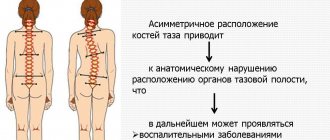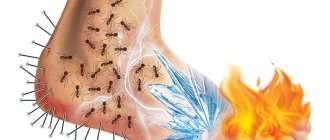Suffered emotional shocks or constant severe stressful situations can cause the formation of serious disorders in the functioning of organs and organ systems, as well as the body as a whole. One type of reaction of the body may be the formation of reactions reminiscent of allergic ones. This phenomenon is called a nervous allergy. It is based on certain pathological processes occurring in the immune system against the background of stress or neurosis.
Nervous allergies are observed equally often in a child, an adult or an elderly person. However, middle-aged women and children are most susceptible to its occurrence (due to the lability of their psyche).
An allergy from nerves manifests itself with the same symptoms as a true allergic reaction. As a rule, these are various forms of skin rash, which are accompanied by redness and swelling of the epithelium, as well as an intense feeling of itching and burning.
Very often in such situations, the cause of the allergic reaction is not identified and an allergy due to a nervous system is confused with an allergy caused by exposure to an allergen - a substance to which the human body has sensitive immune cells. However, different mechanisms underlie the occurrence of these two seemingly identical phenomena. Accordingly, therapy, as well as prevention of these phenomena, will be different.
What it is
A nervous allergy can be a consequence of a disruption in the functioning of the human immune system, which is a reaction to a specific irritant.
In this case, weakening of the immune system is related to the functioning of the central nervous system.
Hereditary predisposition plays an important role in the development of this disease.
The main reason for such reactions are psychological problems that appear after a strong emotional shock.
This could be a feeling of fear, the loss of a loved one, or prolonged panic.
Nervous allergies are especially difficult for young children who do not have a stable emotional background.
What happens in the body
Constant stressful situations and prolonged emotional stress lead to the fact that an excess amount of inflammatory mediators is synthesized in the human body.
This is evidenced by laboratory studies carried out by specialists.
Based on the results of these tests, it was possible to establish that the amount of histamine in such people significantly exceeds the normal level.
Therefore, the presence of a true allergen is not necessary for negative reactions to occur.
The inflammatory process will begin on its own.
However, the research results will not show an increase in the content of immunoglobulin E in the blood or a positive test for any substances.
Based on symptoms and laboratory tests, the doctor will identify a nervous allergy.
In such situations, a permanent allergen simply does not exist.
In moments of strong emotional stress, any product or substance can lead to an imbalance, which will become the impetus for the development of negative reactions.
When a person feels normal, he will be able to consume these products or come into contact with certain substances without much harm to health.
In approximately 50% of cases, doctors can obtain positive allergy tests solely during a stressful situation.
Diagnostics
If a doctor suspects that a person has a nervous allergy, he should pay special attention to assessing his neuropsychic status.
Typically, such patients are characterized by increased excitability and sudden mood swings.
To make an accurate diagnosis, the doctor must conduct the following studies:
- skin tests. In this case, the body’s reaction to the suspected substances is analyzed. If you test at a time of increased arousal, you can get several positive reactions at once. At the same time, in a calm state, a person does not react to the test substances;
- assessment of the level of immunoglobulin E. With the development of allergies of nervous etiology, this indicator usually remains normal.
What is the difference from the true form
Increasingly, experts say that this disease belongs to the category of pseudo-allergy.
According to the observations of scientists, it was possible to establish the fact that in order to develop a negative reaction, a person with hypersensitivity only needs to see or imagine an object that previously caused him an allergy.
For example, an asthma attack may cause a person to look toward a cat if the patient has a reaction to the animal's fur.
In most cases, this syndrome affects anxious and unbalanced patients.
For the true form of the disease to develop, direct contact with allergens is required.
This pathology does not arise as a result of nervous shocks.
Causes
Allergic reactions associated with emotional experiences most often occur in women.
It is the fair sex who are more sensitive.
Common causes of nerve allergies include the following:
- hereditary predisposition. People with this diagnosis tend to develop psychological problems and react very sharply to stressful situations;
- disruption of the immune system. During times of disruption in the functioning of the immune system, the human body is stronger...
Physical manifestations of allergies
Every day a person is exposed to stressful situations. For example, even ordinary crossing of the road can be stressful for the body. Its effect on the functioning of the nervous system is insignificant, and therefore does not in any way affect health.
But often a strong emotional shock can cause a so-called nervous allergy.
In this article we will figure out whether there can be an allergy due to nervousness, how it manifests itself and what needs to be done to treat it.
Content:
General Tips
To forget about this disease forever, it is very important to keep your condition under control and master stress management techniques:
- It is necessary to follow a daily routine and plan your work in such a way as not to accumulate complex tasks. Constant time pressure has an extremely negative impact on the functioning of the nervous system;
- A properly formulated diet is of no small importance. The menu must include foods that contain a lot of vitamin B1. It is he who helps calm the nerves. This substance is found in cereals, cabbage, rose hips and legumes. You can also eat veal, pork, milk, eggs;
- You can significantly improve your condition with massage or yoga sessions. Sports activities have a beneficial effect on the nervous system. In addition, herbal teas will help calm the nervous system. However, it is important to make sure that you are not allergic to their components.
Can there be an allergy due to nerves?
If we talk about whether such a disease exists, then we can say with confidence.
However, this is not a true allergy. Doctors refer to this disease as pseudo-allergy.
The most susceptible to the disease are young children whose nervous system is not yet fully formed, elderly people, and women. The fact is that representatives of the fairer sex, as a rule, react much more emotionally to any situations than men.
Allergic reaction from nerves - what is it?
This allergic disease is provoked by nervous shocks, that is, stress. This could be the loss of a loved one, severe fear or long-term depression. As a result, the immune system weakens, so the body's defense mechanisms are reduced.
In this case, the person becomes more sensitive to the action of external stimuli.
The difference between pseudoallergy and the true form
As noted earlier, an allergy from nerves is a pseudo-allergy. This is explained by the fact that with this disease there are no direct allergens. Therefore, specific immunoglobulins, which are detected in true allergy sufferers, do not circulate in the patient’s blood. Any product can cause a response in such people when the nervous system is most excited.
An interesting fact is that with prolonged calm, the allergy disappears on its own, and a person can consume an allergenic product without showing any symptoms.
Allergy symptoms
When a nerve-related allergy occurs, symptoms usually appear on the skin.
There may also be disturbances in the functioning of the respiratory and digestive systems.
General clinical picture
Symptoms in both children and adults have a general picture. Allergic reactions can occur on any part of the body: face, neck, chest, limbs, abdomen.
In this case, a rash may appear, which can later turn into red spots.
There may also be disturbances in the functioning of the gastrointestinal tract, namely:
- the appearance of nausea, vomiting;
- stomach ache;
IMPORTANT! One of the first symptoms may be increased heart rate, redness of the skin, accompanied by severe itching, and sweating.
From the respiratory system it is noted:
- the appearance of a dry cough;
- runny nose;
- in rare cases, attacks of suffocation due to severe swelling...
Traditional recipes against urticaria
Psychogenic urticaria is effectively treated using traditional medicine. The variety of products allows you to select therapeutic methods for both adult patients and children.
- Infusion of celandine. Celandine has shown good results in the treatment of skin diseases. It removes toxins from the body and cleanses the skin. To prepare the decoction, take a bunch of fresh plant or 1 tablespoon of dry herb and pour a glass of boiling water. The product is brought to a boil and infused for 15-20 minutes. After this, it can be taken 2-3 times a day before meals.
- Nettle decoction. In case of acute manifestation of the disease, it is necessary to take half a liter of boiling water for 50 grams of dry nettle. The ingredients are mixed and boiled for 3-5 minutes. After this, the solution is infused and filtered. The resulting decoction is used to wipe the inflamed areas of the skin every 1.5-2 hours.
- Raspberry decoction. Raspberry roots are poured with water and boiled for a quarter of an hour. The broth is infused for an hour in a dark place. The mixture is filtered and taken orally in 100 ml doses. 6 times a day.
- Hops infusion. Hop cones, valerian and lemon balm are mixed in equal parts. Brew a tablespoon of the mixture with a glass of boiling water and infuse. The decoction is taken 3 times a day, half a glass.
The difference between a nervous allergy and a true one
Today we will talk about allergies due to nerves, whether there can be such a type of disease, causes, symptoms, diagnosis and, of course, methods of treatment.
Allergy is a disease known to many, and most of us believe that for this pathology to occur, contact with one or more allergens is necessary.
With a true allergic reaction, this is indeed the case, but in medicine another term is widely used to denote certain changes in the body, this is pseudo-allergy.
This condition can be triggered by an unstable state of the nervous system, which means that for a complete recovery, a person may need help from a neurologist or psychotherapist.
ethnoscience
In addition to medications, after consultation with a specialist, you can use effective folk remedies. The following proven recipes will help eliminate itching, swelling, and hyperemia of the skin:
- Pour 200 g of birch buds into 200 ml of boiling water, put on fire, boil for 20 minutes. Treat the affected areas of the skin with the resulting product until the pathological symptoms are completely eliminated.
- Apply fresh grape leaves to hyperemic areas of the skin.
- 2 tbsp. l. crushed oak bark, pour 200 ml of boiling water. Use the resulting decoction for compresses and wraps.
- Add 4 parts butter to 1 part St. John's wort juice, apply the medicinal mixture to the inflamed areas of the skin, and store the product in the refrigerator.
- grate raw potatoes on a fine grater and apply the resulting pulp as a compress to the affected area.
For a speedy recovery, in addition to the use of traditional and folk methods of treatment, the psycho-emotional state of the patient is very important. Any experiences and stressful situations are extremely undesirable
Can there be an allergy due to nerves?
Nervous allergy or nervous allergy is a disease that has already been proven by numerous studies.
The appearance of symptoms of the disease is associated with stress, psycho-emotional stress, and a depressive state.
Greater emotional instability is typical for women, which is why this type of disease is most often detected in them.
Pseudo-allergy also develops in young children who experience stress from a difficult situation in the family, school community, or are worried about the death of a loved one.
Certain chemical processes occurring in the human body at the moment when the nervous system suffers are to blame for the development of nervous allergies.
A predisposition to the development of this disease is observed in suspicious, anxious people with a pessimistic outlook on life.
An unusual reaction to stress is expressed by a wide variety of symptoms, ranging from skin rashes and itching to nausea and vomiting.
Sly disease
In a situation with a nervous allergy, the causative agent of such a reaction is usually not detected. Consider a case where a person has experienced severe stress or a serious experience. During this period, he eats, for example, a lemon and becomes covered in a rash.
If such a reaction has not happened before, he may suspect that he has an allergy to citrus fruits, get tested and see the absence of this ailment. This condition is called a nervous allergy. When the stress passes, the patient can easily eat lemons and no longer encounter the characteristic symptoms.
With allergies due to nervous shocks, there is no pathogen as such, however, under certain conditions (with strong emotional stress), a reaction to familiar things can occur.
Many doctors do not even consider nervous allergies to be a disease and call them pseudo-allergies. The main factors in the development of unpleasant symptoms in a patient are stress and anxiety.
Causes of the disease and what happens in the patient’s body
A true allergy occurs if there is an internal or external influence of the allergen.
If there is no effect, then an allergic reaction will not appear.
Therefore, all patients with this form of the disease are recommended to completely limit their body from contact with identified allergens.
With a nervous allergy, it will not be possible to achieve stabilization of well-being in the usual way, because several other reasons act as a factor provoking the disease, these are:
Hereditary predisposition.
Some people, almost from birth, have a tendency to psycho-emotional instability, under the influence of which nervous stress, hysteria, depression, and irritability arise.
An examination of patients with nerve-related allergies revealed that many of them almost always have a reduced psycho-emotional background and an increased tendency to suggestibility and anxiety.
Pressure surges, interruptions in heart function, dyspeptic disorders, hand tremors, and increased sweating are noted.
Prolonged nervous overstrain changes the course of some biochemical reactions in the body, this leads to the fact that inflammatory mediators begin to be produced in increased quantities.
It is these substances that cause the development of symptoms...
Treatment
To effectively treat nerve allergies, you should definitely visit an allergist. The doctor will conduct the necessary studies and tests, and make a qualified conclusion on how the patient can get rid of such a disease as an allergy due to nerves (photo).
Treatment for a nerve-related allergy will differ from that for a common hypersensitivity reaction.
- Antihistamines can be used when symptoms begin because they block the action of histamine.
- Otherwise, the patient’s task is to avoid stress and overexertion. This will be helped by: working with a psychologist,
- taking soothing herbal remedies,
- taking sedatives in more severe cases,
- change of place of work,
- positive communication with family and loved ones,
- revision of life values,
- minimizing loads.
allergolife.ru
If a doctor suspects the development of a nervous allergy, he must assess the patient’s neuropsychic status. People who suffer from this disease are characterized by sudden mood swings, increased excitability and suggestibility.
To identify nerve allergies, doctors conduct the following studies:
- skin tests - allow you to determine reactions to suspected allergens;
- assessment of immunoglobulin E content - in case of nervous allergies, this indicator usually remains within the normal range.
The main goal of treating this type of allergy is to eliminate the triggering factor from the nervous system. To do this, you need to cope with a negative emotional background.
It is also very important for people with this diagnosis to avoid stressful situations or overexertion, which can cause a relapse.
Nervous urticaria is triggered by psychological problems. For this reason, its treatment is complex. It requires relieving the external symptoms of the disease and eliminating the cause of stress. Experts distinguish 2 areas of treatment: medication and psychotherapy.
The use of medications is necessary to relieve the first signs of urticaria, eliminate itching, burning, and swelling of the skin. Antihistamines have shown high effectiveness.
They are used in the form of tablets or ointments. Experts suggest using Suprastin, Claritin.
These are 1st generation tablets. In addition to the antihistamine effect, they have a sedative effect and cause a number of side effects.
Among the latest generation anti-allergy drugs, Zyrtec, Ebastine, and Xyzal have proven themselves well. It is enough to take the drug for several days for the rash to go away.
If the rashes do not disappear, use ointments and creams against skin diseases. In case of urticaria, non-hormonal based remedies are suitable. These can be: Fenistil, Zinc ointment, Skin-Cap, Elidel, Protopic. If symptoms persist for more than 10 days, hormonal-based medications are prescribed. Among them are Advantan, Elokolm, Soderm.
Throughout the entire period of treatment of urticaria, traditional medicine recipes are recommended. It is allowed to use baths with medicinal herbs, lotions from decoctions and infusions of celandine, chamomile, and calendula. Herbs and decoctions help eliminate external signs of the disease and relieve fatigue, irritation, and have a positive effect on the nervous system.
Unlike a true allergy, the treatment of an allergic emotional storm will have a different pattern. The main goal of therapy is to completely or partially eliminate the unfavorable emotional background that served as the impetus for the manifestation of the disease.
Important! At the first manifestations of an allergy, you should consult an allergist. He must differentiate the disease from a true allergy. If, as a result of the diagnosis, it is determined that the body’s reaction was caused by a psychological factor, further treatment should be carried out by a psychotherapist or psychiatrist.
To put the nervous system in order, the following measures must be taken:
- Change your place of work if stress is associated with professional activities.
- Communicate more with loved ones.
- Change your attitude towards problems. To do this, it is better to consult a psychologist.
- Develop the habit of active rest.
- Take courses in acupuncture or acupressure.
- Use reflexive manual therapy.
Learn about the causes and symptoms of coffee allergy in adults.
The treatment of allergic contact dermatitis in children of different ages is written on this page.
Follow the link https://allergiinet.com/lechenie/preparaty/deshyovye-tabletki.html and see the list of cheap but effective allergy tablets for children and adults.
If the disease is associated with high production of acetylcholine, then the patient will need the help of a neurologist or psychiatrist. Based on your emotional state, the doctor will select the optimal medications for treatment.
To relieve local symptoms (urticaria), you can use allergy creams and ointments with anti-inflammatory, antipruritic, and regenerating effects.
Treatment of patients with nervous allergies begins with the prescription of antihistamines.
Antiallergic drugs normalize histamine levels, and the manifestations of an allergic reaction disappear.
But conventional treatment is not enough, since the problem with nerve allergies lies much deeper.
In addition to the allergist, a neurologist or psychotherapist should take a close part in the treatment of patients.
It is necessary to find out what provokes nervous tension, what other changes occur in the body.
Some patients are prescribed herbal sedatives to stabilize the nervous system, while others need antidepressants and tranquilizers to eliminate depression.
These medications must be selected correctly; the patient’s well-being and the absence of side effects depend on the correct dosage and duration of use.
In addition to the course of treatment prescribed by the doctor, you need to make your own efforts to strengthen the nervous system.
This helps:
- Sedavit;
- Novopassit;
- Sedariston.
Effective drugs:
- Gistan;
- Solcoseryl;
- Triderm.
Allergic reactions due to nervous stress
Home » Miscellaneous »
Contents
The variety of causes of allergies makes it a common pathology. Poor nutrition, environmental pollution, and regular nervous overload are factors contributing to the development of the disease.
Some patients underestimate the degree of risk for the patient due to allergies; when allergen accumulates in the body, banal urticaria can develop into a direct threat to human life - anaphylactic shock.
Therefore, at the first symptoms of an allergy, you need to consult an allergist to determine the exact cause of the allergic reaction.
How to make a diagnosis?
Since stress is only a contributing factor, the patient examination algorithm includes standard methods:
- Anamnesis collection.
This is information about the events that preceded and accompanied the development of symptoms, about the main manifestations of the disease, its duration. The presence of similar disorders in close relatives also matters.
- Laboratory tests.
They include the study of blood and other body media (for example, nasal discharge, eyes) to detect cells characteristic of severe allergies (eosinophils, basophils) and specific protein complexes involved in the implementation of the immune reaction (antibodies).
- Skin tests.
This involves applying the suspected trigger to the arm, back, or other selected area and observing the development of symptoms and their intensity.
High-quality diagnostics do not necessarily include a large number of tests. Based on anamnestic data, it is already possible to get an idea of the type of pathological changes. And laboratory tests and skin tests will help confirm how correct it is
When choosing a research method, you need to pay attention to:
- for information content;
- for safety.
Skin tests are not performed when taking a number of medications that cannot be stopped at the moment (antidepressants, etc.) or in cases where there is a real risk of provoking a systemic reaction (anaphylactic shock).
You shouldn't schedule them if your allergy episode has just ended. Laboratory tests may be an alternative, but these should also be individualized.
Stress allergies
Nervous allergy – the appearance of allergy symptoms against the background of moral exhaustion of the body caused by nervous overload during frequent stressful situations. Irritating factors may include:
- regular conflicts at work, at school;
- family quarrels;
- hot-tempered and receptive character;
- loss of a loved one, etc.
With constant exposure to nervous stimuli, the body becomes weak and exhausted.
In this case, the protective forces that can counteract pathological conditions are weakened, and the immune system ceases to perform its protective function.
The concept of nervous allergy has long existed in medical practice. It is known that imbalance of the nervous system contributes to allergic manifestations without the introduction of an allergic irritant. This condition is called pseudoallergy, which differs from true pathology by a number of characteristic signs:
- pseudo-allergy occurs when large doses of a counteragent enter the human blood, capable of causing a response from the body; with a true allergy, small doses of the allergen are sufficient;
- with a false allergy, the severity of symptoms is directly proportional to the incoming irritant, the symptoms of a real allergic reaction are unchanged;
- with pseudo-allergy, the reaction disappears with age; a true allergy remains with a person for life.
Constant depression, stress, accompanied by lack of sleep, poor nutrition, and increased fatigue make the immune system weak and defenseless.
Failures of the immune system make the body defenseless, which leads to allergies without a specific type of allergen.
Prevention recommendations
As preventive measures, it is recommended for people with a laxative psyche:
- use sedatives based on natural ingredients;
- strengthen the body's immune system;
- observe the work and rest schedule;
- to refuse from bad habits;
- systematically engage in moderate physical activity;
- arrive in a good mood;
- surround yourself with positive thoughts (think positively);
- avoid nervous and emotional stress, stressful situations and nervous shocks;
- take regular walks in the fresh air;
- eat properly and balanced;
- observe the rules of hygiene.
Causes
Nervous allergies can occur at any age. According to statistics, women are more susceptible to this condition due to their tendency to be highly susceptible to emotional overload.
Possible reasons:
Manifestations of allergies
The symptoms of allergies caused by stress are in many ways similar to pathologies of other etiologies.
One characteristic feature is that when the emotional background stabilizes, the symptoms smooth out or disappear completely.
Signs of the disease:
- Urticaria is a small rash accompanied by intense itching that gets worse at night. The location can be any part of the body; over time, individual elements merge into large hyperemic spots. When scratching, small wounds can form on the skin, which fester and turn into a weeping form.
- Long-term allergies cause eczema, which cannot be quickly treated and is prone to relapse.
- Allergic rhinitis is profuse, clear mucus discharge from the nose, causing swelling of the nasal mucosa.
The function of nasal breathing is impaired, which leads to discomfort and mild oxygen deprivation...RECOMMENDED VIDEO TO WATCH:











